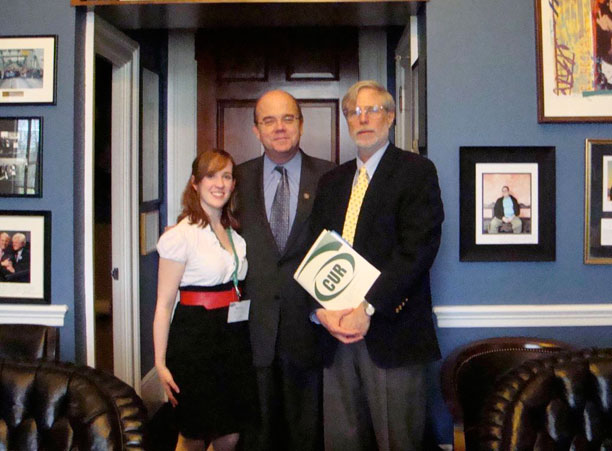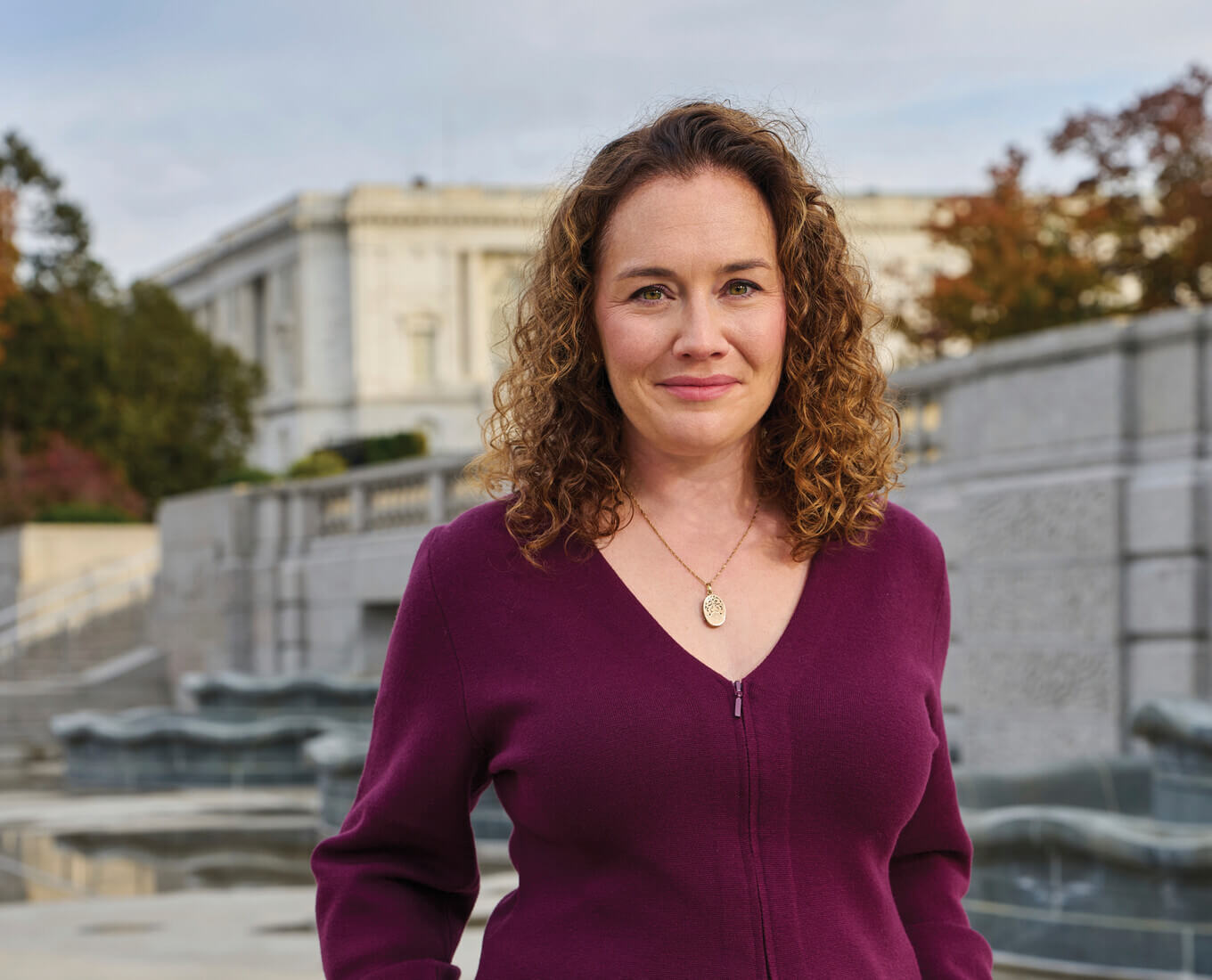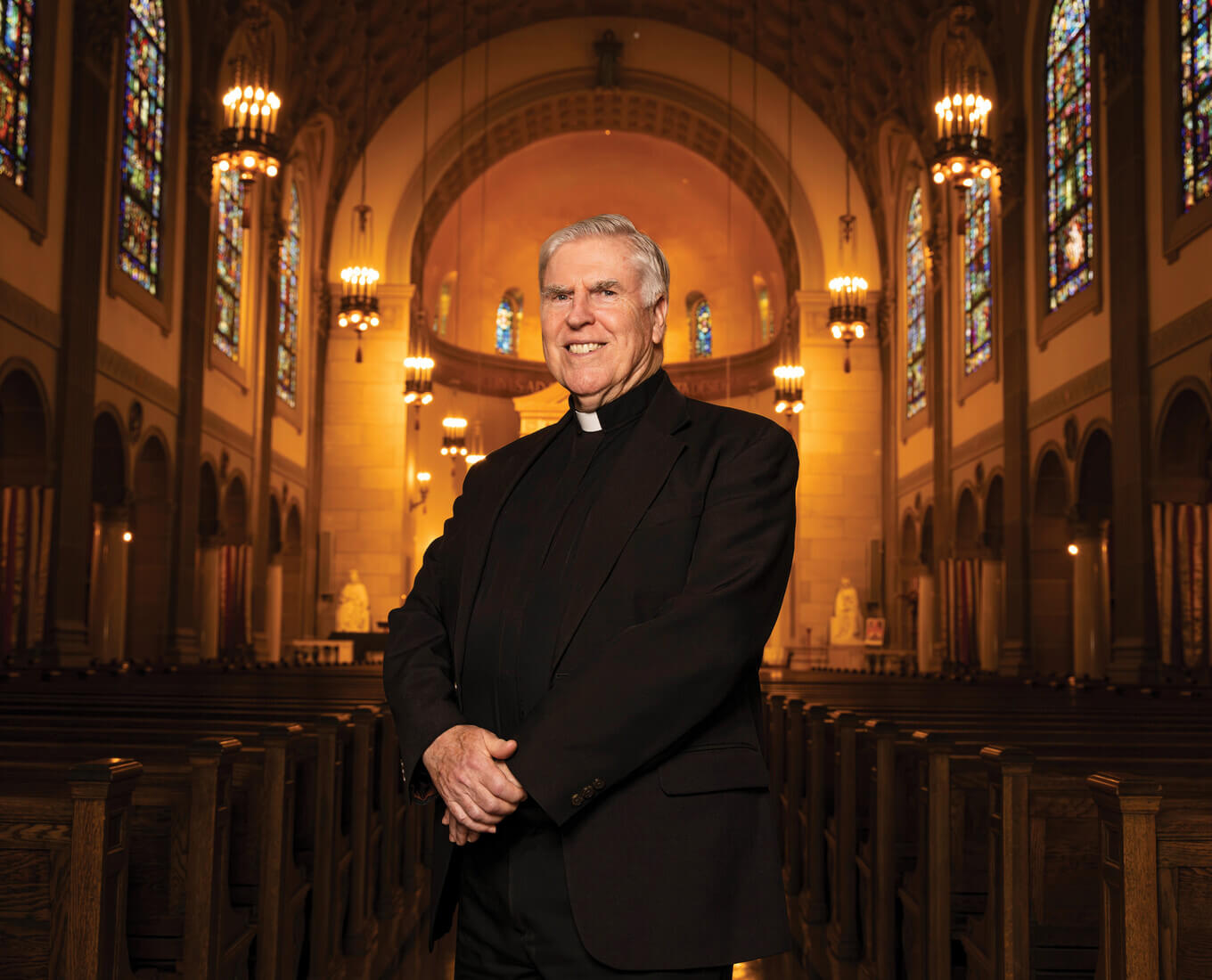Mary (Katie) Caulfield ’11, of Woodbury, N.J., was one of four undergraduate students from across the country who shared how research in the humanities has enhanced and deepened their education during a luncheon briefing titled “Undergraduate Research and the Humanities” held at the Rayburn House Office Building in Washington, D.C., on April 13.
Caulfield, a classics major with a Peace and Conflict Studies concentration, was also among 74 undergraduate students from colleges and universities nationwide honored for their research achievements at the 15th annual Posters on the Hill event on Capitol Hill. Honorees presented their research to members of Congress, congressional staff, federal government officials, academics and others in attendance. Both events were hosted by the Council on Undergraduate Research.
Sponsored by a Mellon Foundation Grant Caulfield worked with Thomas Martin, professor and chair of classics, last summer to produce original research on the work of the historian Flavius Josephus, the most important source for the history of the Jews and Judaism in antiquity. Caulfield edited the ancient Latin translation of the Greek text of Book 6 of Josephus' “Jewish War.” She drew on multiple distinct printed sources, which allowed her to develop a dynamic digital edition.
About the events, she says, “I was among a brilliant group of undergraduates who could speak in their respective disciplines with an expertise usually only afforded to graduate students or professionals. And best of all, they were passionate about it. Speaking on the humanities panel gave me a chance to share my enthusiasm about my own work a little more broadly, while also reminding people that, yes, research in classics is possible — and that undergraduates can (and should) do it! The whole research experience, from the start of my project last summer to presenting for CUR this spring, inspired me with the value of doing real, original academic work, and having an intellectual world to share it with.”
In Washington, D.C., Caulfield and Martin met with U.S. Rep. James McGovern, D-Worcester, in his office on Capitol Hill to discuss her work and the prospects for continuing support for original research in the humanities by undergraduates. Caitlin Hodgkins, a legislative correspondent for McGovern, attended the poster session and panel at which Katie presented.
Josephus is among earliest sources (earlier than the New Testament) on Jesus Christ. Josephus’ work therefore became the second most widely read book, after the Bible, among Christians for the next 1500 years. Josephus’s work remains important to Christians to this day.
Until modern times, Christians read Josephus’s work in an ancient Latin translation rather than the original Greek. Yet this Latin version has never been fully published by scholars, meaning that people today have no way to see the work their ancestors thought second in importance only to the Bible. Caulfield’s work proved that publication of this seminal work using modern electronic technology is achievable and that a digital edition is desirable.
“Her project shows definitively that undergraduates with advanced training in the humanities have the ability and the maturity to contribute to the advancement of knowledge in ways that are crucial to understanding our past and therefore preparing ourselves for the future,” says Martin, who was also in Washington to attend the undergraduate research events.
Caulfield and Martin were one of 10 student-faculty research teams who conducted humanities research in 2010. The Mellon-funded program has been renewed for the next three years and will enable the College to expand the number of teams.
Related Information:
- Classics[gallery orderby="title"]


